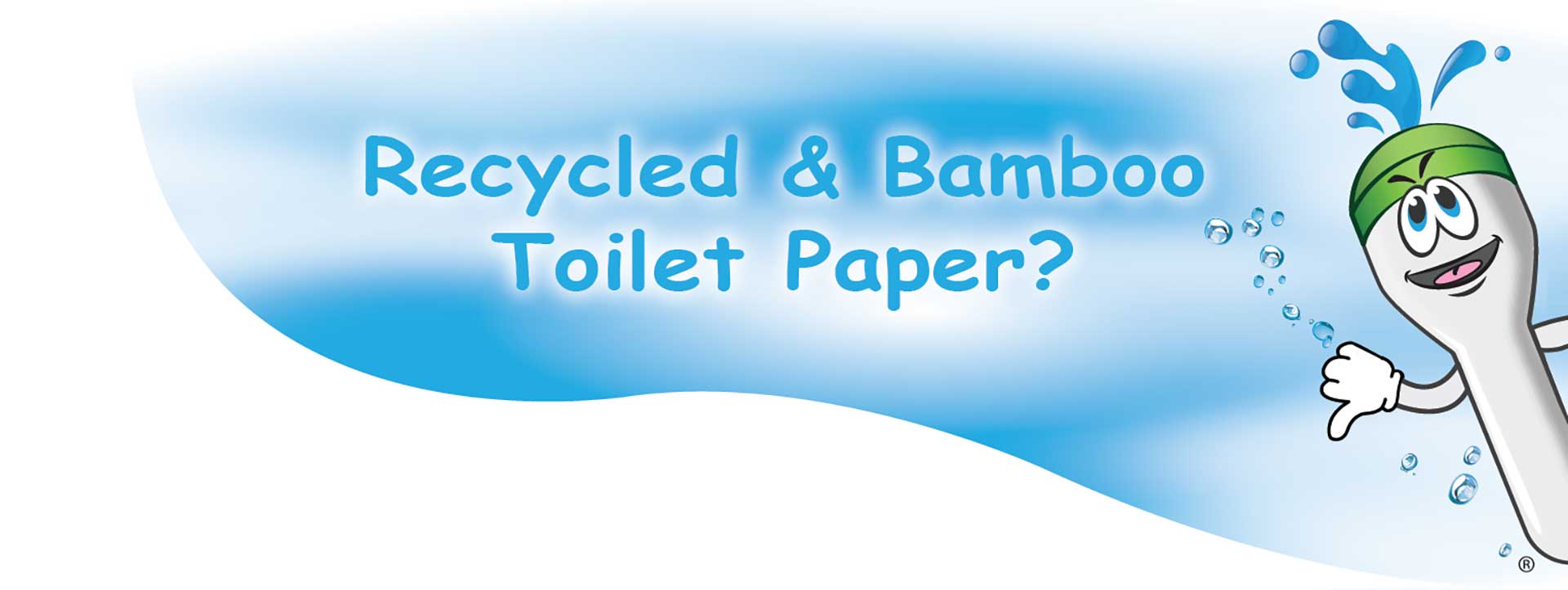
Recycled & Bamboo Toilet Paper:
The Gateway Drugs for Environmentalists
So-called “eco-friendly” recycled and bamboo toilet paper play a key role as gateway drugs for environmentalists who would otherwise switch to bidets. The goal is to keep the environmental community “strung out” in the hope they will eventually succumb to the softer “hardcore” carbon polluting rolls. The toilet paper industry has employed this strategy for decades to keep us all in a never-ending cycle of planet destroying behavior.
Recycled toilet paper is not new. It’s been around since the 1980’s. It was a great idea at the time. It made the boomers aware of the importance of recycling. But forty years later it’s time for all of us, including the environmentally savvy, to face reality – Recycled toilet paper does not allow for the systemic radical change which the present circumstances require.
A single use disposable product is not and should not be considered sustainable. This all shows just how out of touch with reality some in the environmental movement are. Our role is to eliminate waste, not encourage its production. Especially now when demand for recovered paper “far outstrips available supply.” Touting a single use product that’s in short supply is incredibly reckless. Worse yet, doing so drives up the cost of recovered paper which in turn mitigates the financial incentive for innovative companies to convert wastepaper into non-single use products.
Most importantly, recycled toilet paper is a major carbon producer. Environmentalists should not continue to “sweep under the rug” the carbon emitted from toilet paper manufacturing, distribution, and waste. By doing so, we’re complicit in the toilet paper industries environmental crimes against our planet.
Bamboo toilet paper is no different. It’s also a disposable single use unnecessary carbon producing waste product. Just like recycled toilet paper, carbon is emitted during bamboo’s natural decomposition after it’s flushed. Bacteria break down anything that’s biodegradable. Carbon is naturally released as a byproduct.
Also, in the first and what appears to be the only study where scientists actually measured bamboo’s ability to store carbon, it was found that bamboo is a carbon emitter, not a carbon storer. In other words, unlike solid wood that’s a “net sink” where carbon is stored throughout the life of the tree, bamboo is a “net emitter” that cannot store carbon. Thus, this study directly contradicts the carbon benefits promoted by the bamboo toilet paper industry.
In addition, almost all bamboo needs to be imported from Asia. The idea of emitting carbon to facilitate long distance transportation for an unnecessary disposable waste product should make our blood boil. Meanwhile, back in Asia, where bidet use is most popular, they are laughing at us. They know full well that dry paper is wasteful, unhygienic, and ineffective at cleaning.
Whether it’s traditional, recycled or bamboo, it’s time we ditch “old school” paper altogether. But are Americans ready to give up toilet paper and embrace a portable handheld DinDoo? Our founder, Andrew, says yes – “A DinDoo helps advance a more just and equitable society by providing a low-cost bidet option that works just as well as fancier attached units costing hundreds of dollars more.“
We’re also super excited about the launch of our BidetCredits program – The world’s first carbon credits generated from toilet paper mitigation. Individuals and businesses are now able to purchase BidetCredits to cancel-out the carbon their toilet paper use emits. We also introduced the No Skids Movement program to both distribute DinDoo’s free of charge to the homeless and raise awareness about the environmental benefits of switching from toilet paper to bidets. We invite individuals and businesses to join our No Skids Movement and benefit from BidetCredits today.
Author: The DinDoo Team





